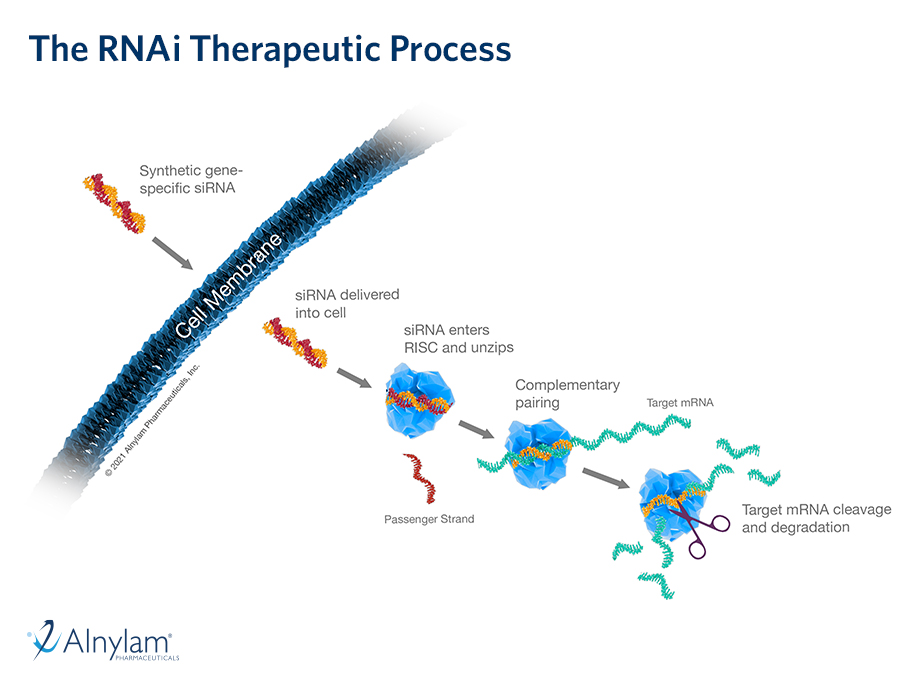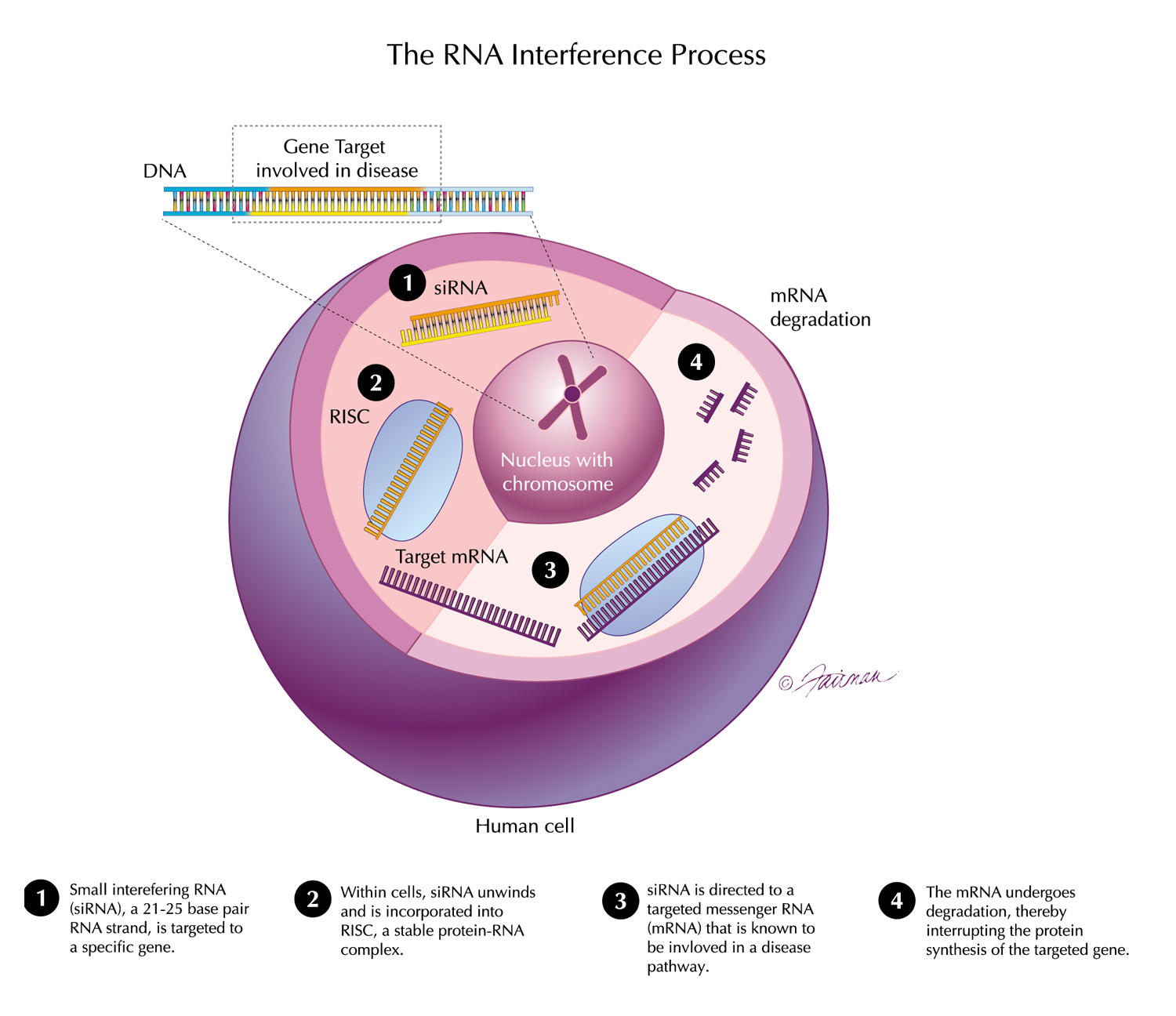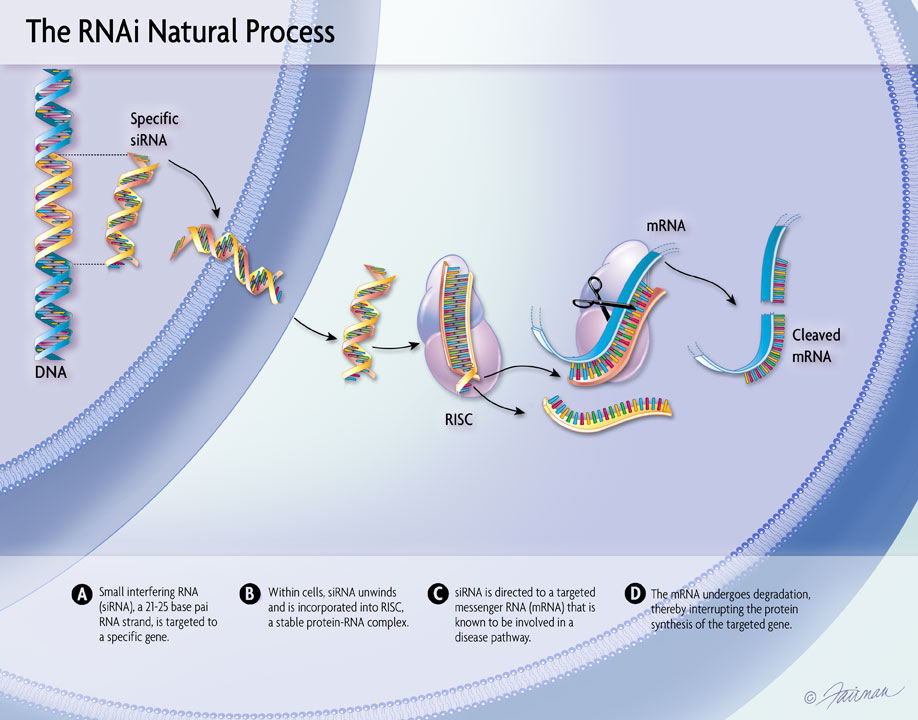
13 Nov, 2020 New Results for ALN-AGT at AHA Scientific Sessions 2020
Positive interim results from the ongoing Phase 1 study of ALN-AGT, an investigational RNAi therapeutic for the treatment of hypertension, were presented during the American Heart Association (AHA) Scientific Sessions 2020, taking place virtually from November 13 – 17, 2020.
The ongoing Phase 1 study is a randomized, double-blind, placebo-controlled, single ascending dose study, evaluating the safety, tolerability and preliminary pharmacokinetic and pharmacodynamic activity of ALN-AGT in patients with mild or moderate hypertension, who were either treatment naïve or had discontinued other anti-hypertensive medications. Compared to placebo, patients treated with ALN-AGT experienced dose-dependent reductions in serum AGT, and blood pressure (BP) reduction was observed concomitantly with knockdown.
- In the 200 mg dose cohort, the mean reduction (+/- standard error [SE]) of AGT at 8 weeks was 94.9 +/- 1.6%. Reductions >90% persisting through 12 weeks after single doses of 100 or 200 mg of ALN-AGT were observed, with up to 97.6% AGT knockdown at 200 mg.
- >10 mmHg reduction of mean 24-hour systolic BP (SBP) was observed at Week 8 in cohorts receiving doses of 100 or 200 mg of ALN-AGT. At 200 mg, mean BP reductions (+/- SE) at 8 weeks were 11.0 +/- 2.4 mmHg for systolic and 7.7 +/- 1.1 mmHg for diastolic BP. Maximum reductions up to 19.0 mmHg and 12.3 mmHg were observed in SBP and DBP, respectively.
- ALN-AGT was shown to be generally well tolerated with an acceptable safety profile for continued development. Most adverse events (AEs) were mild or moderate in severity and resolved without intervention, with the most common AE consisting of mild and transient injection site reactions in 5 out of 40 patients (12.5%) receiving ALN-AGT. There were no clinically significant elevations in serum alanine aminotransferase (ALT), serum creatinine or serum potassium, and no patient required intervention for hypotension. There were no treatment-related serious AEs, deaths or AEs leading to study withdrawal.
We believe these initial data for ALN-AGT support the potential for a fundamentally new approach in the management of hypertension, a disease where innovation has been lacking for decades.


